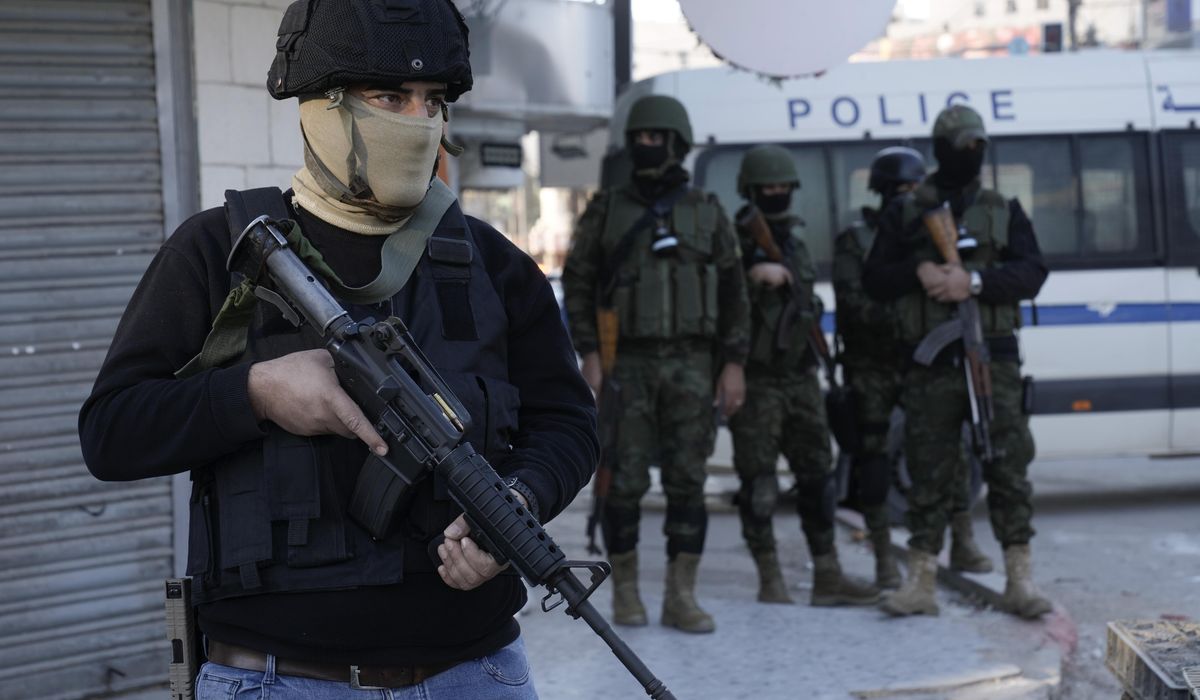


The Constitution doesn’t bar American plaintiffs from suing the Palestinian Liberation Organization and the Palestinian Authority for damages stemming from terrorist attacks, the Supreme Court ruled Friday.
Congress has specifically designated both organizations as liable to be sued under the Anti-Terrorism Act.
Lower courts had said that it violated the PLO’s due process rights under the Fifth Amendment because judges don’t have “personal jurisdiction” over it.
Chief Justice John G. Roberts Jr., writing the key opinion for a unanimous court, sided with Congress and the administration, saying the organizations maintain some U.S. presence and the law put the PLO and PA “on full notice” that they were liable.
“The federal government has an exceedingly compelling interest, as part of its comprehensive efforts to deter international terrorism, in providing a forum for American victims to hold the perpetrators of such acts accountable,” the chief justice wrote. “For similar reasons, American plaintiffs have a strong interest in seeking justice through an ATA damages action in U.S. courts.”
Personal jurisdiction is an element of any case in that judges must determine whether people have reach over the party being sued.
That can be a tricky question when what is being sued is an organization outside the U.S., and the conduct that spawned the challenge was also overseas.
The ruling came on a pair of lawsuits before the justices.
One stemmed from 2004 terrorist attacks in Israel and the other from a 2018 stabbing of an American citizen in the West Bank, a region of Israel with Palestinian autonomy.
Justice Clarence Thomas, while agreeing with the decision, went even further, saying the Constitution doesn’t place any limits on the federal government’s ability to extend personal jurisdiction.
“The Due Process Clause of the Fifth Amendment places no territorial limitation on Congress’ ability to call parties to answer,” he wrote.
The PLO was founded in 1964. Neither the PLO nor the Palestinian Authority, which was formed in 1994, is recognized as a sovereign state by the U.S. However, the PLO serves as a Permanent Observer to the United Nations on behalf of Palestinians.
The cases are Fuld v. Palestine Liberation Organization and United States v. Palestine Liberation Organization.
• Stephen Dinan can be reached at sdinan@washingtontimes.com.
• Alex Swoyer can be reached at aswoyer@washingtontimes.com.
